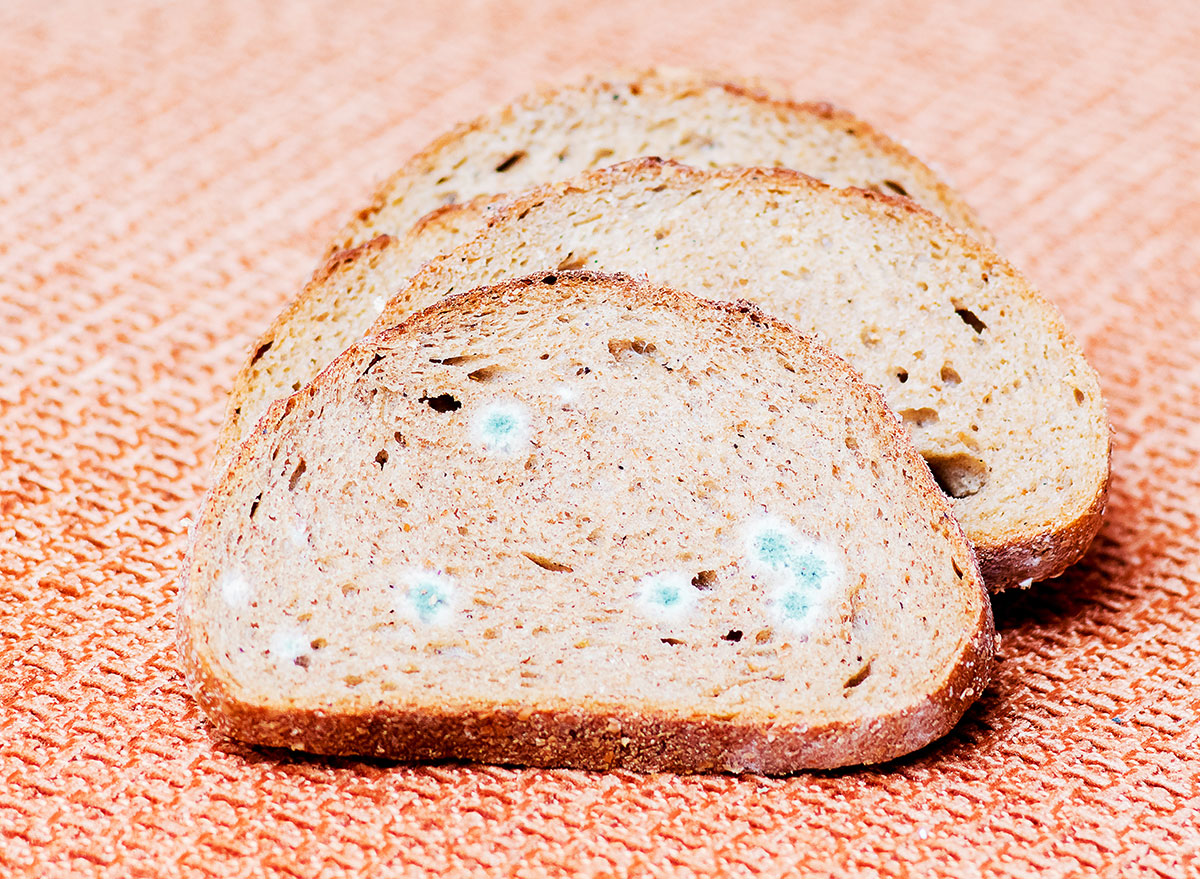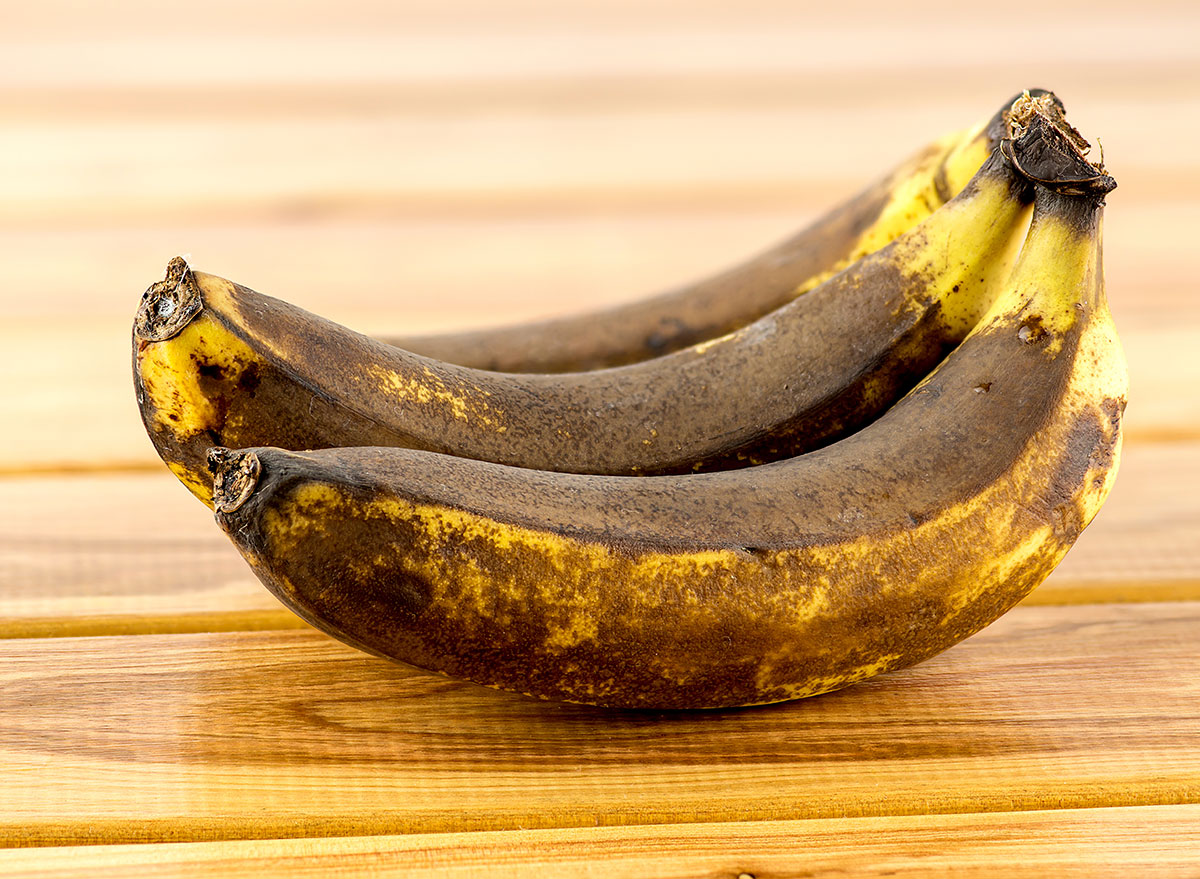5 Side Effects of Eating Expired Foods

Do you ever find yourself accidentally eating expired foods, such as condiments, breads, canned goods, or snacks? Or better yet, do you get that satisfying feeling of cleaning out your refrigerator by tossing expired items? Well, what if we told you that consuming foods past the best if used-by date, the sell-by date, the use-by date, or the freeze-by date isn’t always bad for you?
According to the USDA, many dates listed on foods actually refer to quality, not safety, meaning certain items won’t hurt you if you eat them—they may just taste stale or lose flavor as time goes on.
While the best way to determine if eating expired foods would be of harm to you is to look out for visible mold or strange smells (this is always easier with perishables), a lot of the time consumers aren’t able to see (or even taste) harmful bacteria that could be living on the item. If you spot something funky, throwing it out would be the best option.
“If the date passes during home storage, a product should still be safe and wholesome if handled properly until the time spoilage is evident,” the USDA says. “Spoiled foods will develop an off odor, flavor, or texture due to naturally occurring spoilage bacteria. If a food has developed such spoilage characteristics, it should not be eaten.”
It’s always your best bet to err on the side of caution or check the FDA’s food safety guidelines when consuming expired foods, as the dates can be confusing. But it’s also important to know the few things that could happen to you if you eat something past a given date.
Here are five possible side effects of eating expired foods.
Nothing at all

You’ll probably be glad to know that there’s a big chance that nothing will actually happen to you if you consume something that is expired besides a yucky taste. Even so, it’s still not the best idea nor is it necessary to eat expired foods on a regular basis.
With a lot of foods, the dates are more about freshness and better taste than safety. Per the NRDC, “the dates are only suggestions by the manufacturer for when the food is at its peak quality, not when it is unsafe to eat.”
When looking at the perplexing dates, know that “best if used by/before,” “sell-by,” “use-by,” or “freeze-by” are not purchase by or safety dates. In fact, sell-by dates help stores know how long to display a product, while the others are all about the best quality.
This specifically rings true when talking about non-perishables like frozen and canned foods, which are almost always fine to east past expiration without any side effects. Fun fact: Did you know that food poisoning doesn’t grow in the freezer?
“No matter how long a food is frozen, it is safe to eat. Foods that have been in the freezer for months may be dry, or may not taste as good, but they will be safe to eat,” says the USDA.
With pantry foods, the USDA also says that “most shelf-stable foods are safe indefinitely. In fact, canned goods will last for years, as long as the can itself is in good condition (no rust, dents, or swelling). Packaged foods (cereal, pasta, cookies) will be safe past the ‘best by’ date, although they may eventually become stale or develop an off-flavor.”
In addition, pasteurized foods typically won’t cause illness (though they could have a funky smell or taste) because as the FDA notes, all harmful bacteria is killed in the pasteurization process. This is why unpasteurized foods are a big no-no for pregnant women.
According to a study done at Cornell University, “spoilage of pasteurized milk before its time is most often caused by bacteria that contaminate the milk after the pasteurization process and/or from improper refrigeration,” so it’s still best to take a peek at the expiration date or give your milk a sniff before indulging.
Food poisoning

Food poisoning occurs to one in six Americans per year, and symptoms like fever, chills, stomach cramps, diarrhea, nausea, and vomiting are obviously no fun. Contracting food poisoning could be possible by consuming expired foods if they are contaminated or spoiled, but it’s not always likely.
However, this is more common with perishable foods such as eggs, meat, fruits, and vegetables, because mold, sour taste, weird color or texture, and poor smells are more detectable. It’s important to monitor when these items were bought so you know if you’re putting yourself at risk by eating something after too much time. It’s human nature that if something smells, looks, or tastes rotten, you won’t want to eat it anyway.
The USDA notes that spoilage bacteria on food “does not cause illness but does cause foods to deteriorate and develop unpleasant characteristics such as an undesirable taste or odor making the food not wholesome.”
When it comes to food poisoning, though, expired foods are oftentimes one of the smallest culprits. According to the U.S. National Library of Medicine, food poisoning can stem from eating foods that are of course raw, undercooked, left out for too long, or not stored at proper temperatures. Something that you may not always have control over is whether or not the food was not safely handled, like if someone touching it had not washed their hands or used contaminated cooking utensils, or cutting boards, all things that can cause food poisoning as well.
Exposure to dangerous bacteria

Food poisoning could be mild or severe, but sometimes, contracting food poisoning can expose you to dangerous bacteria or toxins, including Listeria, Campylobacter enteritis, Cholera, E. coli, Staphylococcus aureus, Salmonella, and Shigella, and more.
“Microorganisms such as molds, yeasts, and bacteria can multiply and cause food to spoil. Viruses are not capable of growing in food and do not cause spoilage,” the USDA says, noting that pathogenic bacteria on food is more likely to cause foodborne illness.
Unfortunately, many of these harmful bacteria have been linked to illness, hospitalization, and even death, according to foodsafey.gov.
Many of these bacteria can cause stomach issues such as vomiting, while symptoms for Listeria could include a stiff neck, confusion, loss of balance, convulsions, fever and muscle aches, Salmonella could include diarrhea, fever, stomach cramps, vomiting, and E. Coli could present bloody diarrhea and hemolytic uremic syndrome (HUS).
Loss of nutritional value

While food can lose quality and develop a poor or stale taste past an expiration date, one of the bigger things to note is that over time, food can lose nutritional value as well.
This is specifically true with infant formula, which is the only item that federal regulations require a “use-by” date on the product label under inspection of the FDA to monitor nutrient decline. “Consumption by this date ensures the formula contains not less than the quantity of each nutrient as described on the label,” the USDA notes. “Formula must maintain an acceptable quality to pass through an ordinary bottle nipple.”
One study on maximizing the nutritional value of fruits and vegetables also noted that loss of nutritional value happens with produce between the time of harvest, time at the store before purchase, and the time the consumer keeps the fruit and vegetables stored before consumption. “This means that fresh fruits and vegetables may not be consumed for a significant length of time following harvest, during which time nutrient degradation may occur,” the article says.
That said, even if you wanted to indulge in expired produce, on top of the not-so-good smell, texture, or taste, just know that you’re also not getting the max amount of nutrients that you would if you were to eat it while ripe.
Perfectly good food gets wasted

Because decoding expiration dates and knowing when something is actually bad could be quite confusing, this, unfortunately, leads to a high amount of wholesome food being wasted in the U.S. because people are tossing perfectly good food.
“In an effort to reduce food waste, it is important that consumers understand that the dates applied to food are for quality and not for safety,” the USDA reiterates. “Food products are safe to consume past the date on the label, and regardless of the date, consumers should evaluate the quality of the food product prior to its consumption.”
The NRDC estimates that the average U.S. household discards $275 to $455 per year of good food because of confusion with expiration dates. The USDA also notes 30-40 percent of the food supply in the U.S. goes to waste. That said, to help decrease these numbers, use your best judgment, and thoroughly check foods for smells, taste, textures, and more before throwing it in the trash.